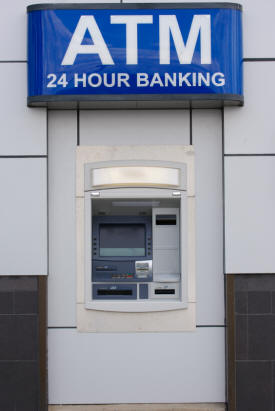 LOS ANGELES – The president of a Calabasas firm that was used to run a Ponzi scheme that caused investors to loss more than $100 million plead guilty Wednesday to federal fraud charges.
LOS ANGELES – The president of a Calabasas firm that was used to run a Ponzi scheme that caused investors to loss more than $100 million plead guilty Wednesday to federal fraud charges. Joel Barry Gillis, 74, of Woodland Hills, plead guilty in relation to a 13-year-long scheme that collected hundreds of millions from investors who were told their money would be used to purchase profitable automated teller machines, according to officials.
Victims were prohibited from visiting locations were ATMs were supposedly placed, officials said.
Another defendant charged in the scheme related to Nationwide Automated Systems, Inc. or NASI – Edward Wishner, 76, also of Woodland Hills, who held various titles at NASI, including vice president – plead guilty on Jan. 13 in the case that bilked approximately 2,000 investors.
Gillis and Wishner each plead guilty to conspiracy, two counts of mail fraud and one count of wire fraud. As a result of their guilty pleas, each defendant faces a statutory maximum sentence of 80 years in federal prison.
Both men are scheduled to be sentenced on March 30.
According to the evidence, this is what happened, officials said:
- Gillis and Wishner operated NASI, which purported to place, operate and maintain ATMs in high-traffic locations, such as hotels, casinos and convenience stores.
- NASI claimed that it operated approximately 31,000 ATMs and was involved in more than $1 billion in ATM transactions every month.
- Victim-investors paid a flat amount – typically $12,000, but in some cases as much as $19,800– to buy a specific ATM, each of which was to be installed at a specific location.
- Gillis and Wishner told victim-investors that NASI would lease back the ATMs and pay investors 50 cents for each transaction performed at their particular ATM, guaranteeing annual returns of 20 percent on each ATM.
- NASI did make monthly payments to investors, but that money came from other investors.
- While NASI did operate a small number of ATMs – no more than 250, which were owned by the company and not investors – the overall operation was a sham. Gillis and Wishner prevented investors from discovering the fraudulent nature of the business by providing bogus monthly reports to the investors that falsely detailed the supposed performance of the investors’ ATMs.
- Gillis and Wishner also included a “non-interference” provision in the lease agreements that prohibited victim-investors from visiting the locations where their ATMs were supposedly located.
The scheme unraveled this past summer.
In August, “NASI bounced approximately $3 million in checks that had been sent by NASI as monthly returns to victim-investors,” according to the charging document in the case.
“By the end of the month, NASI had drained its bank account, drawing it down to a balance of less than $200,000.”
But, even as the Ponzi was collapsing, Gillis and Wishner continued to raise another $4 million from victim-investors.

